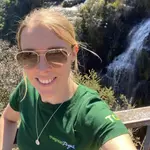

Raja Ampat Diving Project
Join this expedition to dive unexplored reefs and partake in marine conservation amongst the islands of the intrepid Raja Ampat archipelago.
Speak To A Travel Expert
Activities
As a volunteer, you will take part in a wide variety of marine conservation activities, involving yourself in numerous dives throughout your time here as well as assisting the local communities resident on the island. A list of activities you may take part in is outlined below. Additionally, you can choose to spend 7 or 10 days on a liveaboard boat, visiting different regions of Raja Ampat and taking part in even more research and leisure dives. Please click below to view the full itineraries and available start dates:
7-Day Central and North Raja Ampat Itinerary
10-Day South Misool and Central Raja Ampat Itinerary
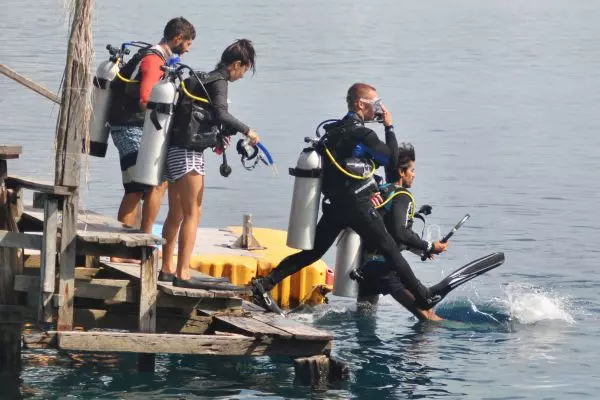
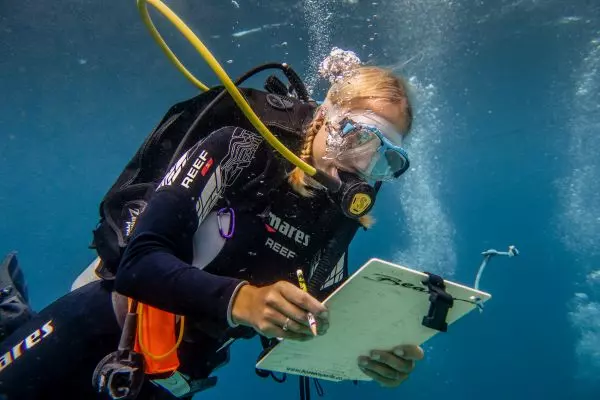
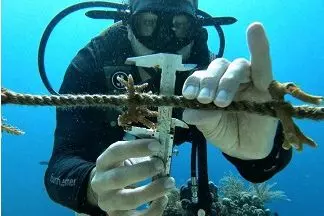
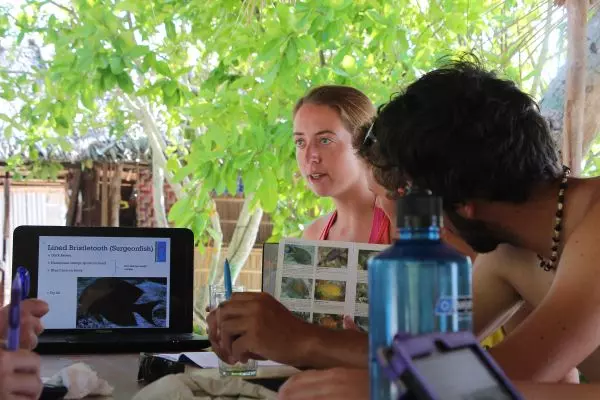
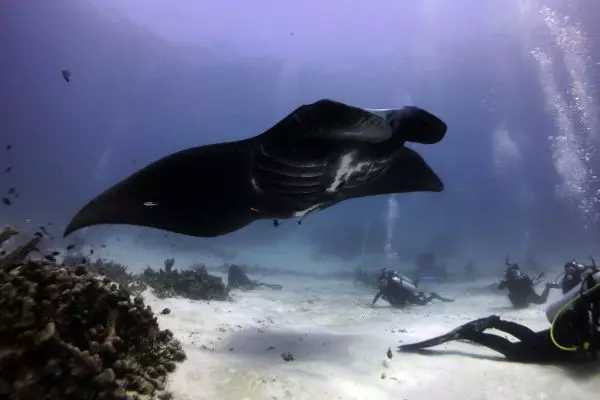
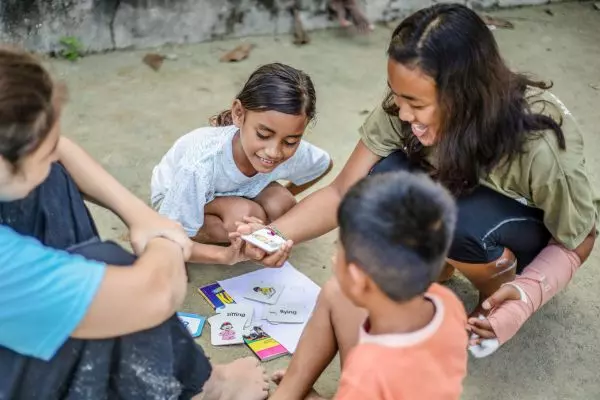
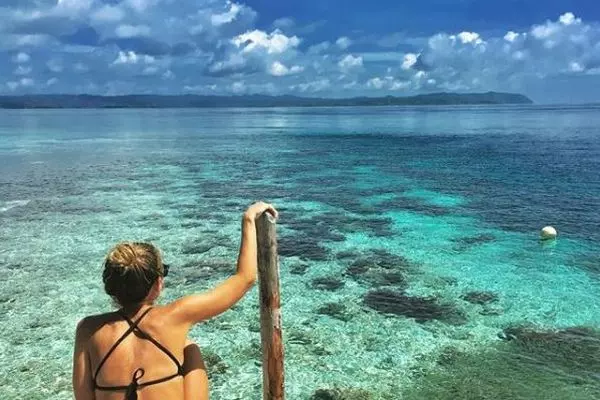
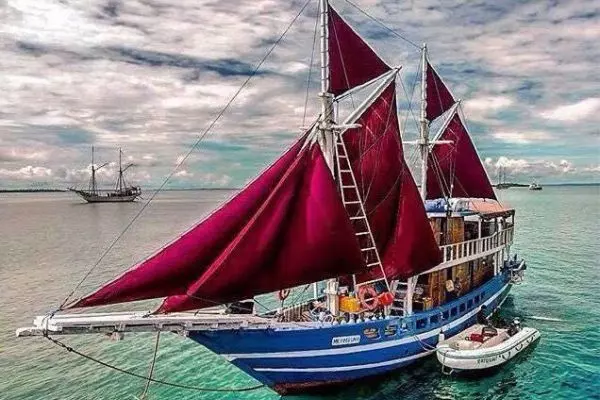
Itinerary
Below is an example of a 3-week itinerary for an unqualified diver. If you are PADI Advanced Open Water qualified or above, you would start from day 8.
Durations & Prices
Accommodation
Accommodation
During your time on the project, you will stay in a rustic bungalow situated on the beach. Each bungalow has been built by the local community using traditional methods and materials, making your time spent ‘island living’ all the more authentic. Volunteers typically share rooms on a same-sex basis, though this cannot always be guaranteed. Each bungalow is equipped with bunk beds, mattresses, pillows, bed linen, mosquito nets, and a fan. They also have a power supply, so you can charge your electronics, however, the generator only runs at night. There is one bungalow on the island which has 2 private rooms, so if you are travelling as a couple, this option may be for you! The additional cost is $162 per week, and please speak to a member of the travel team for more information.
Please be aware, you are joining a volunteer expedition on a small remote island and so the accommodation and facilities are very basic. The camp works on a foundation of teamwork and communication and as such all volunteers and staff work together to keep the camp clean and tidy.
Meals & Beverages
Three meals per day are provided, prepared for you by a member of the local staff (except on Sundays, when all meals will be prepared and cooked by expedition staff and volunteers). Meals are based on local cuisine and the seasonal availability of produce. The project is able to cater for specific dietary requirements but do please let us know well in advance as the island is very remote, with supplies being collected just once per week from Wasai!
Drinking water is also provided, either from the desalination machine in camp or from water bottles bought in from Waisai. It is important to note, however, that as this expedition is located on a very remote island, there may be limitations surrounding fresh water, meaning shower time may be limited on occasion. Additional bottles of fresh water can be bought from the local shop and are always available and reasonably priced.
Project Details
Getting There
You will need to meet at The Ignislo Sorong Hotel at 8am on your project start date. We recommend arriving into Sorong the day before to ensure that you do not miss the transfer to the project site. Sorong Airport (SOQ) can most easily be reached via Jakarta International Airport (JKT).
Visa Requirements
If staying in Indonesia for no more than 30 days, citizens of the UK, USA, and nations in the European Economic Area can obtain a single-entry tourist visa on arrival. Depending on your route or arrival airport, this visa may be free or may cost up to US$35.
If you will be in Indonesia for 30 to 60 days but will complete your time on the project within 30 days of arrival into Indonesia, you are able to get a tourist visa on arrival and then extend this in Sorong after your time on the project for a further 30 days.
If, however, you will be in Indonesia for 30 to 60 days in total but will still be on the project 30 days after arrival into Indonesia, you will need to obtain a social/cultural visa in advance. In this case, we will provide you with the documents you need to support your application.
For anyone joining the project who will be in Indonesia for more than 60 days in total, you will need to obtain a social/cultural visa in advance and will then need to extend this. This can be done in Sorong and transport from the project site can be arranged for this for a small fee.
For all visa questions, we strongly recommended consulting your local Indonesian embassy, as well as checking your own country’s government website with regards to travel. Please note that visas are your own responsibility.
Dive Courses
You are able to join this project as a qualified or unqualified diver and there are a number of dive courses available that you can complete.
You must be at least PADI Advanced Open Water qualified (or an equivalent) to take part in the research and science dives on this project. So if you join as an unqualified diver or with only the PADI Open Water qualification, you will spend your first week completing your PADI Advanced Open Water qualification.
You are then able to gain some or all of the following dive qualifications (depending on how long you volunteer for).
Emergency First Response: This course is designed to build the confidence of a diver, increasing their willingness to respond when faced with an emergency. This can be completed for no additional fee, however, you must purchase and complete the PADI eLearning course in advance.
Rescue Diver: Should you wish to enhance your diving further, you can undertake the Rescue Diver Course at an additional cost of $270. This course can be challenging, but incredibly rewarding as you become a better diving ‘buddy’ and can become confident in your ability to help others if needed. You will need to have completed the Emergency First Response course in order to complete this.
Dive Master: Take on your first level of professional training as you work to become a Divemaster. Perfect your skills, including those relating to rescue, and see where your qualifications can take you! Gaining your Dive Master qualification takes a minimum of 8 weeks for those holding an Advanced Open Water qualification, or 10-12 weeks if you join the project as an unqualified diver, although we recommend allowing 12 weeks to complete this for all. If you join the project for 12 weeks, you can complete this course for no additional fee, however, if you volunteer for 8 - 11 weeks and want to get your qualification, there's is an additional charge of $473.
Diving Equipment
If you are joining an expedition as an unqualified or PADI Open Water qualified diver, your expedition fee will include the use of a Buoyancy Control Device (BCD) and a full regulator set (1st, 2nd Stage, Octopus, and SPG) for the first week. If you are joining an expedition as a PADI Advanced Open Water qualified diver or above, you will need to bring your own equipment, including BCD and full regulator set.
It is, however, possible to rent these items on-site (whether you are a qualified or unqualified diver) if you do not wish to carry them while on further travels. The following items are available for rental on-site (costs are per week and in Pounds Sterling):
- Buoyancy Control Device (BCD) - $21
- Full regulator set (1st, 2nd stage, Octopus and SPG) - $21
- Mask & Snorkel - $14
- Wet suit - $14
- Fins & dive boots - $21
- Dive computer (compulsory) - $27 ($203 refundable deposit needed)
If you would like to rent any of the above items for your expedition, please indicate this on your project account within the rentals section or inform your travel consultant before you go. If you do not do this, we cannot guarantee the items you may need will be available when you arrive on your expedition. If there are high numbers of volunteers renting items, please be aware that there may be times when volunteers will need to share the equipment between them, but this will not impact the dives you are able to join. We recommend volunteers bring their own equipment where possible.
Fitness & Skills
Divers require a fairly high level of fitness and good lung capacity. You needn’t be an athlete, but you must be relatively fit and healthy! If you are already a certified PADI diver, you will be able to begin this project with marine conservation volunteering work, with the opportunity to improve your PADI dive skills throughout the project. If you are an unqualified diver, you will begin the programme with a week’s training course to become PADI certified. To do so, you must be a fairly strong swimmer, and must not be afraid of underwater submersion.
Vaccinations
There are no specific vaccinations required to join this project; therefore, we recommend consulting your GP/doctor or a travel clinic and following their advice on vaccinations for travel. You can also find helpful advice and information on the Travel Health Pro website.
Videos
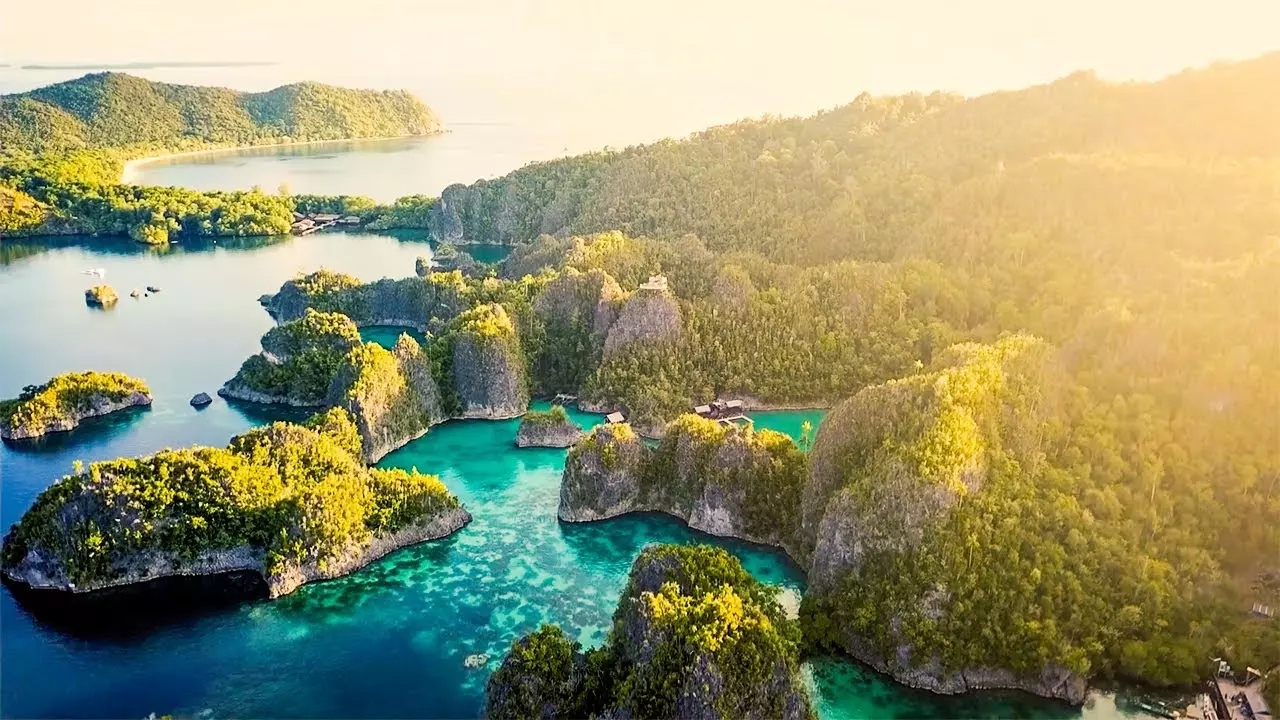
The Raja Ampat Diving Project
The Raja Ampat archipelago consists of a whopping 1500 small islands, and with only 35 of them inhabited, many of the islands remain unexplored. Find out more about this marine conservation project located in one of the last scuba diving frontiers on earth.
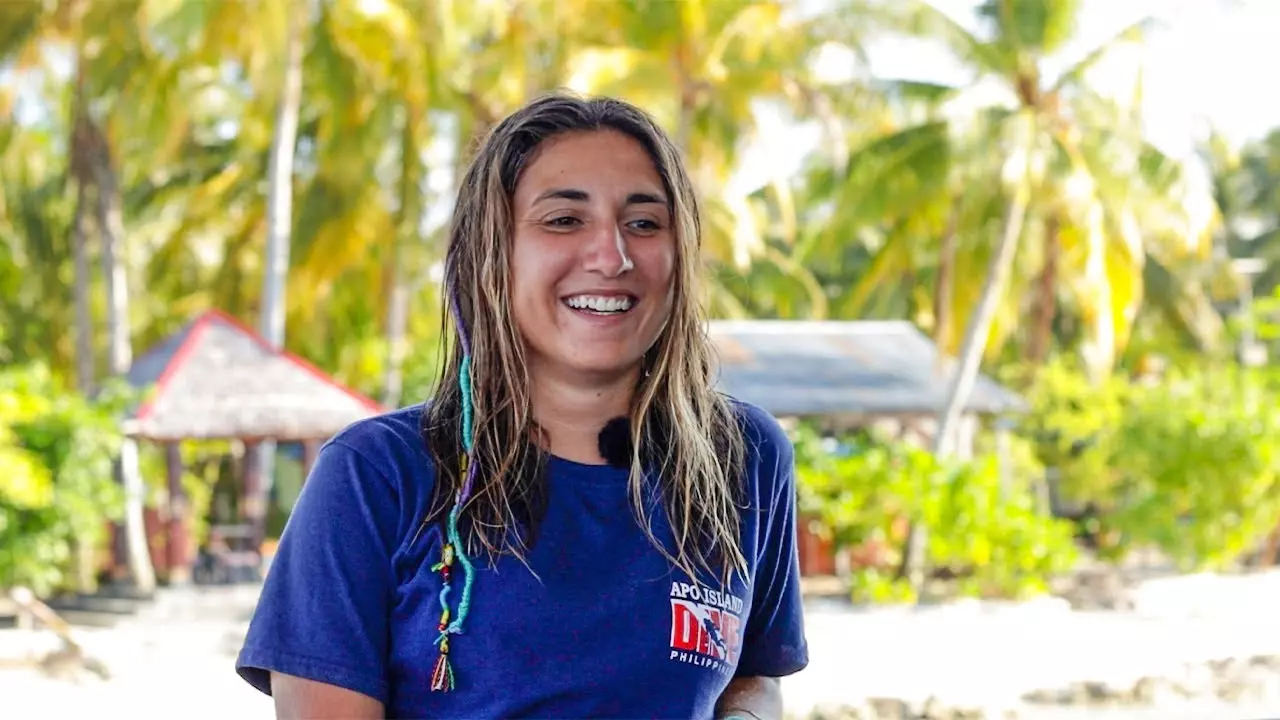
Volunteers Review Their Experience in Raja Ampat.
Volunteers Aliya, Neshay and Barney review their time on the Raja Ampat Diving Project in Indonesia.
Gallery
Reviews
Loved every minute but my favourite moment was when I saw my first ever manta ray swim by me.
Need to stress in pre-joining documents the need to bring a reef hook. I did but others didn't - and this restricted our dive sites whilst they arranged to buy them from Waitai. May not have been TGP volunteers - but just saying - they are listed - but they are actually more important than people may think because some of the better dive sites/experiences cannot be visited without one due to the currents.
My favourite moments were the manta dives.
What's Included
- Accommodation
- 3 meals a day, tea, coffee and filtered water
- Scuba diving training courses for divers (ONLY for Open Water, Advanced Open Water and Emergency First Response courses)
- Tanks, air, weights & weight belts (all divers)
- A comprehensive science training programme
- All dives (up to 12 a week when possible)
- 24-hour field support staff
- Transfers between Waisai port and basecamp (via boat)
What's Not Included
- Flights
- Airport transfers
- Ferry transfers between Sorong and Waisai port
- Travel insurance (which must cover you for diving of depths up to 30m and for repatriation)
- PADI eLearning courses which are required for every course you will be completing whilst on the project. These must be bought (and preferably completed) prior to your arrival.
- Raja Ampat Marine Reserve park fee (IDR 1,000,000)
- Dive Slate - you must bring this with you!

























